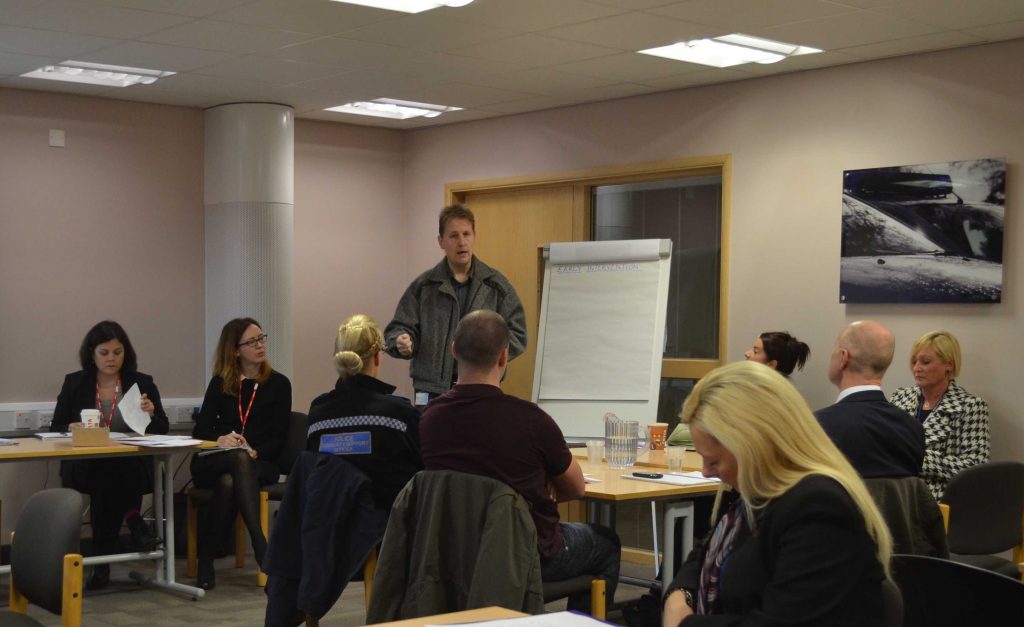
A workshop to help drive the way forward on the early intervention agenda was held in Staffordshire yesterday.
Staffordshire was chosen as a Pioneering Place last year by the Early Intervention Foundation (EIF) to do even more work to prevent people from slipping into a life of crime.
Yesterday’s event at police headquarters in Stafford saw police officers give their views on the way early intervention could be used in their role to reduce offending.
The findings will help form national guidance for police officers on early intervention.
Police and Crime Commissioner Matthew Ellis, who opened the workshop, said: “Tackling the root causes of crime rather than the effects is absolutely key and at the centre of my plan for the next five years.
“Making sure that public services intervene early and stop problems before they happen is not only better for those individuals involved but also the best way of reducing crime and making a positive impact on their communities for the long term.
“The evidence is clear that reducing repeat offending and in some cases ‘breaking the cycle’ which is often generational, really works, not just in the short term, but for years to come.
“We are working with the EIF to create guidance for officers about early intervention; how early intervention can be incorporated into daily police business and the benefits of doing so. This will then be made available to champion the early intervention agenda nationally.”
Donna Molloy, Director of Implementation at the EIF, said: “Many of the places the EIF is working with are asking us how key public services such as the police can support the local early intervention effort. They want to know what early intervention actually means for the day to day work of these public services.
“We’re delighted to be working with Matthew Ellis and Staffordshire police to explore the role that the police can play in early intervention.
“Operational police officers instinctively understand the case for intervening early. We don’t need to convince them. They know the warning signs that can lead to crime and antisocial behaviour and they understand the need to provide advice and support before problems become entrenched or individuals hit crisis point.
“Under the Home Office Crime Prevention Panel, and in partnership with the College of Policing, we will be producing national guidance for police on the practical role that they can play, alongside their local partners. Yesterday’s workshop will mean that this work is shaped by the views of police working with young people and families on the frontline.”



